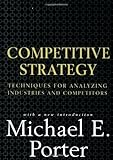There is a severe code of ethics followed by honest competitive intelligence practitioners, laid down by the Society of Competitive Intelligence Professionals (SCIP).
This includes the terms that CI professionals:
- must abide by all applicable laws - whether domestic or international. Thus bugging, bribery, and other such illegal practices would be a serious breach of the ethical code.
- must accurately disclose all relevant information, including one's identity and organization, prior to all interviews. This ensures that primary research is conducted ethically without twisting. As such it also limits what can be done - and attempts to gain information through lies about one's identify would be viewed as industrial espionage. At the same time, the code of ethics recognizes that it may not be in the interests of the research to declare the final purpose for which the information is being gathered - hence it is only required to reveal relevant information to sources such as one's identity, organization, etc. It is not a requirement to say who the ultimate client is, and so many organizations employ consultants who can be absolutely honest about who they are while keeping their client's name confidential. Such consultants will say that the information is being collected as part of a benchmarking or industry study, for example. What is not said is that the benchmarking study is being done only on competitors to the client!
- must provide honest and realistic recommendations and conclusions in the execution of one's duties. Competitive Intelligence can sometimes expose unpleasant truths that companies would prefer not knowing. At the same time, not knowing could lead the organization to failure. Competitive Intelligence professionals need to communicate both the good and the bad - strengths and weaknesses - even in cases when management would rather stay in lack of knowledge. Further, along with the message, the CI professional should use their understandings to provide suggestions and recommendations for action. If the intelligence gathered is not used but ignored it has no value. As a result, competitive intelligence is a key discipline in enabling company’s preserves and expand competitive advantage in their business environment.
Espionage
Industrial espionage and corporate espionage are phrases used to describe espionage conducted for commercial purposes instead of national security purposes. Espionage is sometimes called the dark sister of competitive intelligence.
Espionage is more than the legal and ordinary methods of examining corporate publications, web sites, patent filings, and the like to determine the activities of a corporation. In business language the term covers more the illegal methods such as bribery, blackmail, technological surveillance and even occasional violence. In addition to spying on commercial organizations, governments can also be targets of commercial espionage—for example, to determine the terms of a tender for a government contract so that another tenderer can underbid.

 How can industrial or corporate espionage be compared to competitive intelligence? Competitive Intelligence research can be distinguished from industrial espionage, as CI practitioners in general abide by local legal guidelines and ethical business norms.
How can industrial or corporate espionage be compared to competitive intelligence? Competitive Intelligence research can be distinguished from industrial espionage, as CI practitioners in general abide by local legal guidelines and ethical business norms.











 Competitive Intelligence
Competitive Intelligence